Introduction
In the relentless battle against cancer, medical science has continually strived to develop innovative treatments that can extend and improve the lives of patients. Zejula, known by its generic name Niraparib, is one such groundbreaking medication that has emerged as a beacon of hope in the realm of cancer therapy. Developed by pharmaceutical company Tesaro (now part of GlaxoSmithKline), Zejula belongs to a class of drugs known as poly ADP-ribose polymerase (PARP) inhibitors. This description will delve into the intricacies of Zejula, exploring its mechanism of action, approved indications, potential side effects, and its impact on cancer patients.
Mechanism of Action
To understand the significance of Zejula, it is vital to comprehend its mechanism of action. PARP inhibitors are a class of drugs that target specific proteins within cancer cells. Zejula, in particular, works by inhibiting the activity of PARP enzymes. PARP enzymes play a crucial role in repairing damaged DNA within cells. Cancer cells often have defects in their DNA repair mechanisms, which makes them vulnerable to further DNA damage.
When Zejula is administered, it interferes with the function of PARP enzymes, preventing them from repairing DNA effectively. This leads to a buildup of DNA damage in cancer cells, ultimately causing them to die. This selective targeting of cancer cells while sparing healthy cells is what makes Zejula an invaluable tool in the fight against cancer.
Approved Indications
Zejula has been approved by regulatory agencies in various countries, including the United States Food and Drug Administration (FDA) and the European Medicines Agency (EMA), for the treatment of specific cancer types. As of my last knowledge update in September 2021, Zejula was indicated for the following conditions:
- Ovarian Cancer: Zejula was approved as a maintenance treatment for women with recurrent ovarian cancer. Specifically, it is indicated for patients with high-grade serous epithelial ovarian, fallopian tube, or primary peritoneal cancer who have achieved complete or partial response to platinum-based chemotherapy. This means that Zejula can be used to help prevent the recurrence of cancer in these patients.
- Advanced Ovarian Cancer: Zejula also received approval for the treatment of advanced ovarian cancer in patients who have received at least three prior chemotherapy regimens and have specific genetic mutations known as BRCA mutations. These mutations make cancer cells more susceptible to the effects of PARP inhibitors like Zejula.
- Advanced Breast Cancer: In certain cases, Zejula may be used to treat HER2-negative metastatic breast cancer in individuals who have received prior chemotherapy. This indication is usually for patients who have a BRCA mutation.
Please note that the approved indications for Zejula may have evolved since my last update, and it is crucial to consult the latest medical literature or a healthcare professional for the most current information.
Efficacy and Clinical Trials
The development and approval of Zejula were supported by rigorous clinical trials that demonstrated its efficacy and safety in cancer patients. These trials involved thousands of participants and provided valuable insights into the drug’s potential benefits.
In the NOVA trial, which focused on patients with recurrent ovarian cancer, Zejula showed a significant improvement in progression-free survival compared to a placebo. This means that patients who received Zejula experienced a longer period of time without their cancer progressing.
Similarly, in the QUADRA trial, Zejula exhibited promising results in women with advanced ovarian cancer who had received multiple lines of chemotherapy. The study showed that Zejula had a meaningful impact on disease control and overall survival in this challenging patient population.
Side Effects and Safety Profile
Like all medications, Zejula comes with a range of potential side effects. Common side effects of Zejula may include nausea, fatigue, constipation, abdominal pain, and anemia. It is essential for patients to discuss any side effects they experience with their healthcare provider, as there are strategies to manage these symptoms.
One notable aspect of Zejula’s safety profile is its potential to cause bone marrow suppression, which can result in low blood cell counts. Regular monitoring of blood counts is typically recommended during treatment to manage this risk.
Patients taking Zejula should also be aware of the potential for more severe side effects, such as hypertension (high blood pressure) and myelodysplastic syndrome (a disorder that affects blood cell production). These adverse events are relatively rare but require close monitoring by healthcare providers.
Patient Selection and Genetic Testing
One crucial factor in determining the suitability of Zejula treatment is genetic testing. Zejula is most effective in patients who have specific genetic mutations, particularly BRCA mutations. These mutations can make cancer cells more vulnerable to the effects of PARP inhibitors like Zejula.
Before starting Zejula, healthcare providers often recommend genetic testing to identify whether a patient has these mutations. This information helps guide treatment decisions and ensures that the drug is administered to those who are most likely to benefit from it.
Conclusion
Zejula, or Niraparib, represents a significant advancement in cancer treatment, offering new hope to patients with certain types of ovarian and breast cancer. Its mechanism of action, targeting DNA repair processes in cancer cells, has shown remarkable efficacy in clinical trials, leading to its approval for various indications. However, it is essential to recognize that Zejula is not a one-size-fits-all solution, and patient selection, including genetic testing, plays a critical role in determining its suitability.
While Zejula holds great promise, it is not without side effects, some of which can be severe. Close collaboration between patients and healthcare providers is vital to monitor and manage these side effects effectively.
As medical research continues to advance, Zejula exemplifies the progress made in the field of targeted cancer therapies. It stands as a beacon of hope for patients and a testament to the relentless pursuit of innovative treatments to improve the lives of those affected by cancer.

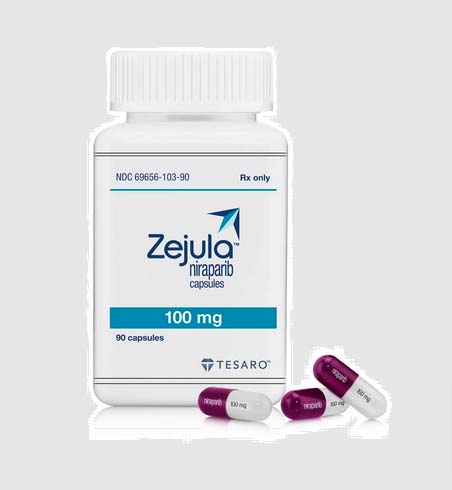
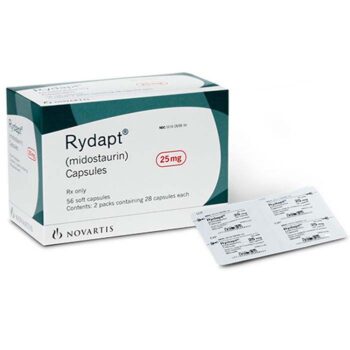

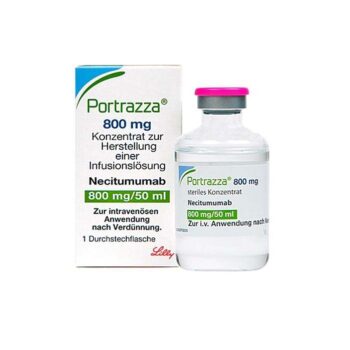
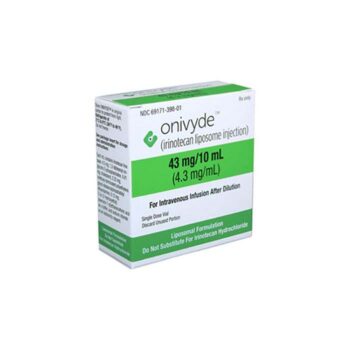

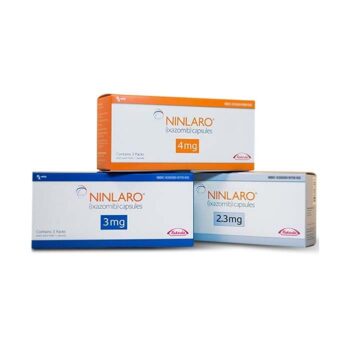
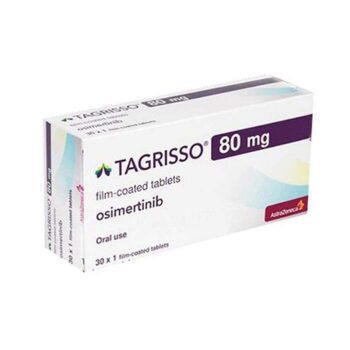


Reviews
There are no reviews yet.